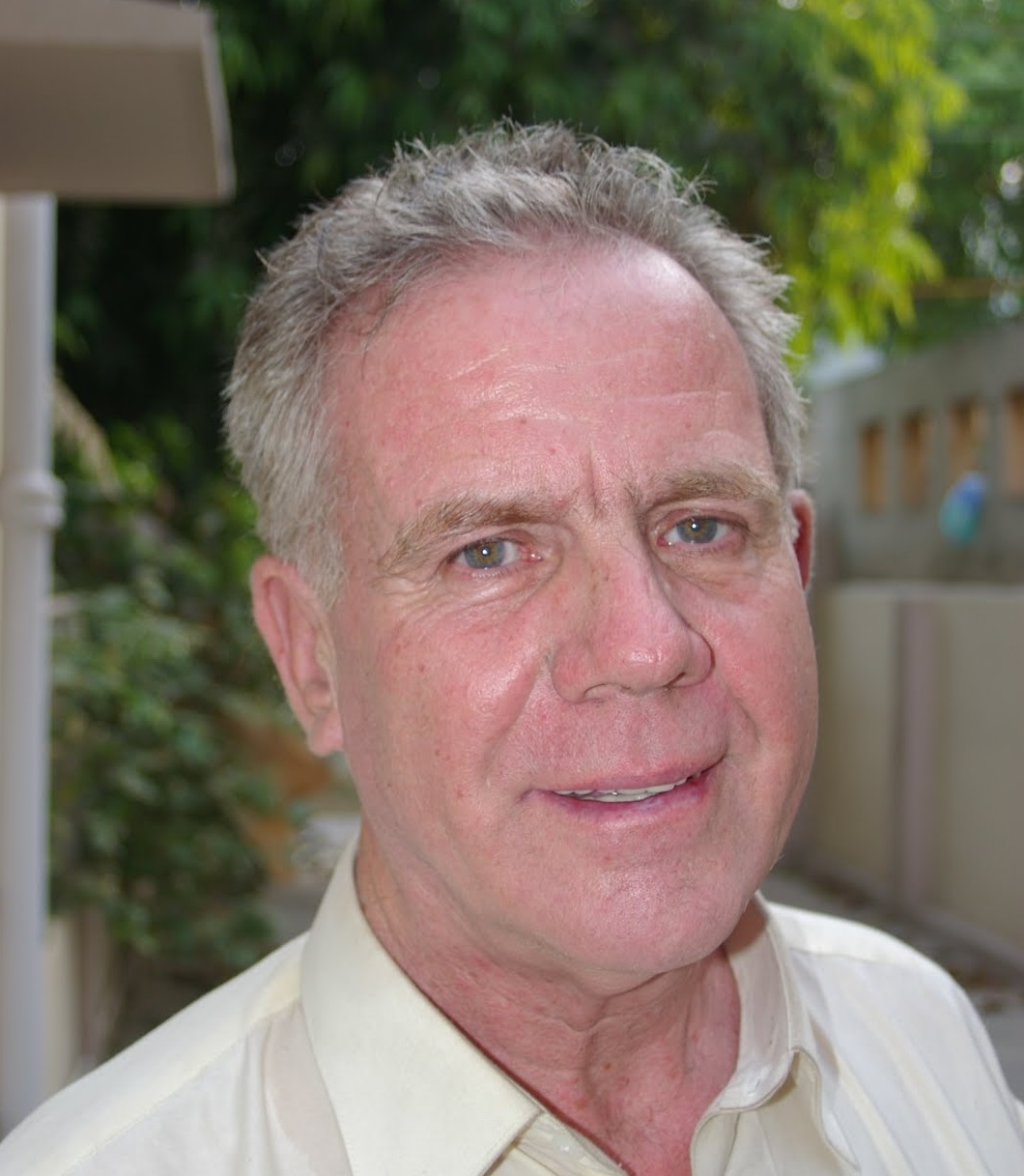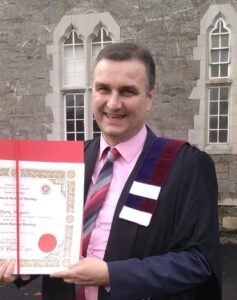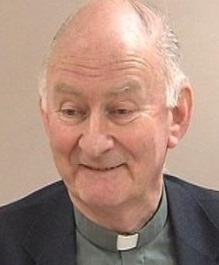
Fr Pat McCaffrey, Columban, died 2010
“You have left your home and family and crossed the seven seas, you came from the other side of the world, from a rich country. You have taken the pains to learn our language. You come here to visit us again and again. You worked with us in the fields and shared our simple food and slept with us on the floor at night. You have journeyed with us in our poverty….
Who ever comes to visit us? We are considered low caste in this society, we are nobody. You have helped me to feel that I am somebody, for that I am deeply grateful…”
These words were spoken by a peasant farmer in the 1980s in Pakistan – to the Late Father Pat McCrossan, an Irish Columban missionary, who died in 2010 and is buried in the same mission fields.
In Covid-19 Ireland, 2020, how many are starved of a sense of their own dignity … trying to be somebody? Who will cross the road, never mind the seven seas, to learn their language? This is surely the challenge of the emerging church of the 21st century, here in this storied land.
This to me is what the church should be, not rules and regulations, but rather journeying with your fellow brothers and sisters in Christ, in the messiness of lived reality, of everyday life. This is the servant leadership model of Jesus.

Mark Maguire – Pastoral Theologian
It was in this belief that I undertook a two year course in Pastoral Theology in Drumalis Retreat Centre, Larne, Co. Antrim – starting in 2017. This forms lay people for leadership roles in the church. For example; leadership in public prayer, in pastoral care, in spiritual accompaniment and building and strengthening community. It involves acquiring specialised skills for diverse settings: in Catechetics, formation of faith and the exercise of responsible stewardship of parish, personnel and resources.
I graduated in Maynooth on 9th November 2019, along with my fellow fifteen classmates. If you ever get the opportunity to study an Adult Faith Developmental course or partake in any of their retreats; I strongly recommend you do. Drumalis is the most beautiful, spiritual and welcoming place to nurture your faith. Drumalis meets you at whatever level of faith you are. Their team aspires to help you grow in faith by nurturing it. (The food is second to none.)
Direct Contact
Personally I would define Pastoral Theology, as being in direct contact with people. You are being practical and proactive in caring for someone’s spiritual needs, the care of their souls – by reaching out to people and journeying with them in their own personal struggles and joys. You are making them aware that they are not alone, ensuring that they have a sense of worth, a dignity. No matter what is going on or how alone they may be feeling, God loves them. He walks with them in their everyday struggles. You are helping people connect and develop a deeper relationship with God. By being pastoral you are helping to point people in the direction of eternal salvation in Gods kingdom.
Jesus proclaimed, preached and lived the Good news. Jesus searched for those on the margins of society in order to bring them into the community.
So I was thinking anyway, long before that virus hit, when in September 2017 I began that two-year course in Pastoral Theology at Drumalis retreat centre, County Antrim.

Bishop Donal Murray of Limerick
Now, May 2020, that course seems extra- relevant. Especially as explained by Bishop Donal Murray. The game changer for me – that light bulb moment, revealing why the Holy Spirit led me to this course in lay leadership was when we were asked to complete a book review on Bishops Murray’s book. ‘Keeping Open The Door of Faith, The Legacy Of Vatican II’.
Suddenly the source, the call of baptism, uttered for Bishop Murray most strongly by Vatican II (1962-65) was calling me also.
Suddenly I understood – that by virtue of our baptism we, the laity are called to mission. Every Christian is called to play his/her part in the spreading and handing on of their faith.
It was surely that example set by Jesus, which called Father Pat to ministry all those years ago.
Jesus and the Way
What speaks to me about Jesus ministry, ‘The Servant Leadership Model of Ministry’, is that Jesus journeyed with people in their daily struggles, excluding no one. Through being pastoral, Jesus reached out to all showing care, compassion and mercy to all. Also when Jesus saw that something was not right, he challenged it. As a role model Jesus shows us a way of life that points to the truth of the Gospel values.
Jesus is a great example of how we should serve one another, as he came to serve, not to be served. Jesus went forth, encountered society in order to spread the Gospel message. That servant leadership model, that pastoral approach, drew people to God through encounter.
Why did I take the Pastoral Theology course? I would say it’s a mixture of three things. The Holy Spirit, Fr Pat McCaffrey RIP and Pope Francis. I would be very attentive to discerning the will of the Holy Spirit in using me as an instrument for the continued build-up and spread of God’s kingdom. I felt very drawn to this course. I felt very content in putting my trust in God and in following the path the Holy Spirit has lead out for me.
Fr Pat Mccaffrey RIP, was a Columban priest who died in 2010 and is buried on the mission field in Pakistan. His wish was to be buried among the people he served and journeyed with. Fr Pat was much loved not only among Catholics he served but also among the Hindus and Muslim communities. He was loved for his friendly greetings, his constant visits and untiring practical help. His commitment to interfaith dialogue as a means of promoting understanding and unity among all people was unwavering.
After Fr Pats death in May 2010, his brother, my father-in-law gave me Fr Pat’s book, entitled ‘On the Margins’. Something struck me very profoundly after reading what thay man said to Fr Pat.
Next Pope Francis. Suddenly this man appears – humble and unassuming, with a vision of the church that I aspire to see also. What a breath of fresh air. As if the windows of the church have been flung open again, by the Holy Spirit. Just as in Vatican II.
Shared Responsibility a Must
For the missionary called to become effective in today’s culture, I feel shared responsibility between clergy and laity is needed. The laity needs to be enlightened, encouraged, educated and empowered. They need to discern their own diverse operative theology, so they can contribute to mission and find out what it is God, wants to use them as an instrument in the build-up and spread of Gods kingdom. It is important that the laity go out and encounter people in society that do not come into direct contact with the church. They can encounter Jesus through your actions and interactions with them, as members of the body of Christ, the church.[14]
The challenge is to make this theology accessible and understood by all. To help enlighten and empower, the lay faithful as to their vocation through baptism, when each is made. Priest, Prophet and King and in so being, each are called to the Salvific Mission of Jesus Christ. The language has to be, I say again, accessible and relevant, so as to meet people at whatever level of faith they are.
In particular we need to embrace Lumen Gentium (1964) – the Vatican II constitution on the church. This informs us of the roles of Bishops, Priests and the sleeping giant, the laity.
Waking up to Crisis, and to Christ
The Spirit -filled vision of Vatican two is being lived out right now, in this Covid crisis. The light of Christ is being reflected more brightly in today’s society through our shared common priesthood – in helping each other, our fellow brothers and sisters in Christ as we try to navigate. Through our actions and interactions in bringing the Gospel message alive by travelling with each other, we are living out our baptismal calling in being church by working towards the common good of all. This gives me great hope, and also serves as a blueprint for all members of the common priesthood. The sleeping giant of the Body of Christ, the Church, is waking up!

Congratulations, Mark, on completing your course in Pastoral Theology and thank you for sharing your experiences and views with us through your article.
I fully support your view that, as a consequence of Covid-19, people are supporting and caring for neighbours and friends with a real sense of responsibility underpinned by kindness and genuine concern. There is no doubt we realise we are all ‘in this together’ and the threat of the virus has awoken and brought to the surface the best in people. There is evidence everywhere of what believers in the message of Jesus would refer to as Christianity in action. Is it a coincidence that while the churches are closed and we are deprived of our regular ‘spiritual sustenance’ we have discovered for ourselves a new way of being church? How has a life-threatening virus moved society in this way while the efforts of church leaders, for example in the case of the Roman Catholic Church since Vatican 11, have failed completely to convince people of the value of the simple message of Jesus based on love and service to one another?
Is it too much to hope that we, who have an interest in sustaining and passing on the Christian message, might take time to discuss and analyse why the virus has succeeded where the best intellects in our church have miserably failed, particularly in recent decades? We must strive to understand the dynamics in action in our communities at this time and try to identify how we can work to ensure that this new way of living and behaving doesn’t disappear once a vaccine is found. Otherwise we will drift back more rapidly than we might imagine to our old selfish ways as previous norms ‘kick in’. There are some features of life BC [before Corona] which we rightly want to see restored but there are so many aspects which have changed for the better during the crisis and the challenge for us is how we ensure these become the ‘new and enduring norm’ for us striving to live the Christian way of life . To achieve this we must not fall into the trap of going down the route of looking for new ways to do old things instead we must be bold and innovative and find a completely new way of being church.
Thank you Mark for sharing your inspirational story of being drawn to pastoral theology and the practical application of your learning, particularly at this difficult time.
As you and Noel say, the lessons we have learned from the communal response to the Covid pandemic must not be forgotten and will be valuable as we endeavour to work out how the liturgy starved post-virus church will operate.
Indeed the embracing and implementation of Lumen Gentium would provide a roadmap for the re-imagining of the church as we face into the post- Corona future. The laity must be allowed to play their rightful part in a new way of being church.
I think that clergy and laity working together as one within the Body of Christ is something that will be eased into as we try and find a new way in being church. As long as there is openness and trusting in the will and direction the Holy Spirit wishes to bring us then we should all be able to build trusting working relationships. Thus we can all work together for the continued spread of God’s kingdom.